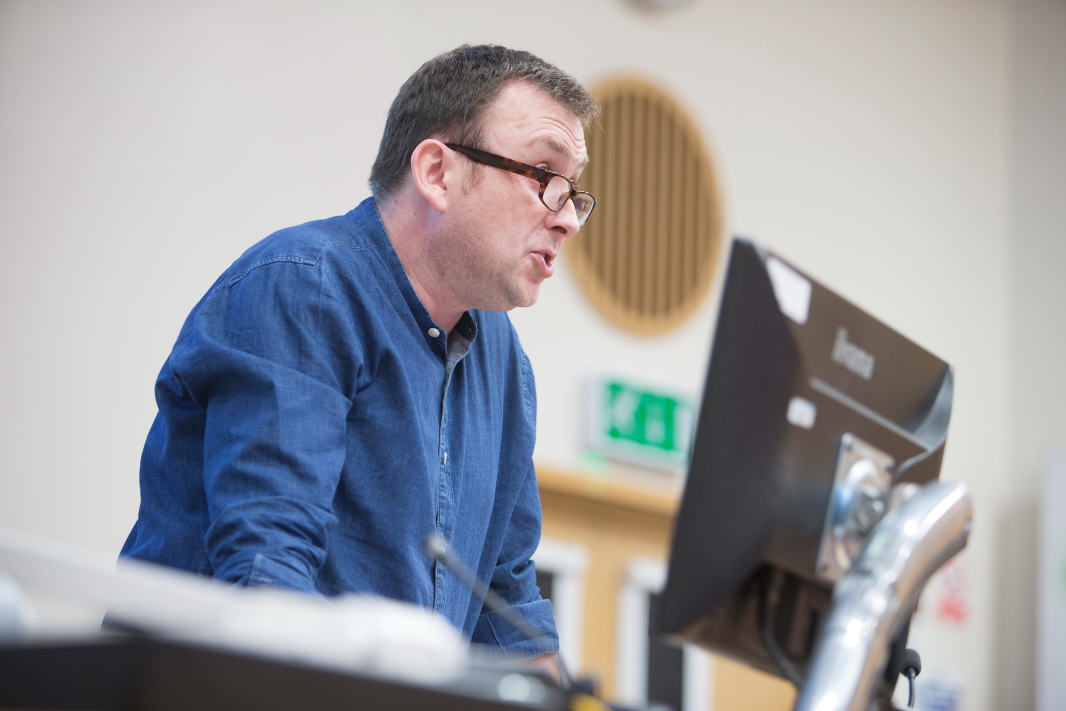By Dr David Bates
Response to Cllr Martin Vye’s ‘Surely we can find room for refugees’
Cllr Vye refers to the content of my talk as ‘empty polemic’. As I state in my letter to the Kentish Gazette, Cllr Vye has the absolute right to disagree with my argument, but he should read it first. I have read Cllr Vye’s letter, and have the following observations.
Cllr Vye states: ‘It would be a disaster simply to open the gates without having a careful and rigorous plan worked out’. The idea of opening the gates for me comes too close to invoking the idea of an alien mob at the borders, waiting to flood into the UK. We should acknowledge that European nations are to a significant degree responsible for this crisis, to the extent that their strategies of ‘intervention’ have destabilised the Middle East, and to this extent created the conditions of possibility for the emergence of groups such as ISIS. This is not to argue that policies of liberal intervention are never appropriate – they are. Yet, military intervention is a ‘dirty hands’ issue; however good our intentions, wars inevitably harm the innocent. We have a substantive ethical responsibility to help those who have through no fault of their own been placed in harm’s way. This is not an argument for completely open borders; yet, the solution cannot be to build ever higher security fences and walls.
Cllr Vye goes on to note:
‘As a UKip councillor – yes a UKip councillor – said at a recent debate we had at the county council about the country’s policy regarding refugees. “let’s not confuse the issue of migrant workers from the EU, with that of genuine refugees”, those families bombed out of house and home in Syria, stuck in soulless camps, or huddled in rain-swept fields in the Balkans’.
Contemporary politicians often seem to use the distinction between ‘genuine refugees’ and migrants like Victorian politicians used the distinction between the ‘deserving’ and ‘undeserving’ poor. There are people who ‘deserve’ our help, and the rest – the majority – who are free riding on the good will of others. There are a number of reasons why this is a problem. First, because it implicitly sets an unreasonably high standard for when aid is appropriate, that is ‘those families bombed out of house and home in Syria, stuck in soulless camps, or huddled in rain-swept fields in the Balkans’. Second, because we cannot characterise economic migrants as somehow not deserving our aid. Michael Dummett makes this point well when he writes:
‘It needs only a moment’s thought to realize that flight for economic reasons may be as justified and as worthy of sympathy and help as flight from political persecution; but so conditioned has the British public become by unvaried official propaganda against asylum seekers that it never spares a moment to think about the question.’ (Dummett, 2001: p. 45)
Cllr Vye also writes: ‘People in Canterbury shared in the great surge of compassion felt by British people when they saw the plight of Syrian refugees, and there have been hundreds of offers of practical help’. This is fantastic. The morality of the general public is often well in advance of that of politicians. However, I have one point of caution. The Syrian refugee crisis is one of unspeakable terror. However, it is not the only human crisis on Europe’s shores. We ought not to lose sight of the plight of Eritreans, Iranians, Afghans and Sri Lankans to name but a few. To cite the words of Amnesty International as a starting point:
‘No political opposition parties, independent media, civil society organizations or unregistered faith groups were permitted to operate. There were severe restrictions on freedom of expression and association. Military conscription was compulsory, and frequently extended indefinitely. Thousands of prisoners of conscience and political prisoners continued to be held in arbitrary detention, in harsh conditions. Torture and other cruel, inhuman or degrading treatment was common. Eritreans continued to flee the country in large numbers.’
Cllr Vye suggests ways in which our local community – Canterbury District – might address the needs of refugees on the ground. The suggestions he sets out are good, though not particularly well developed. There is a great deal of research going on in Canterbury Christ Church University which might help to build on such proposals. I also completely agree that Canterbury City Council needs to do way more than it is currently doing. I hope Cllr Vye can use his influence to pressure our local leaders into doing so.
References
Michael Dummett (2001), On Immigration and Refugees, London: Routledge.
 Politics
Politics Anna Vanaga
Anna Vanaga 793
793


